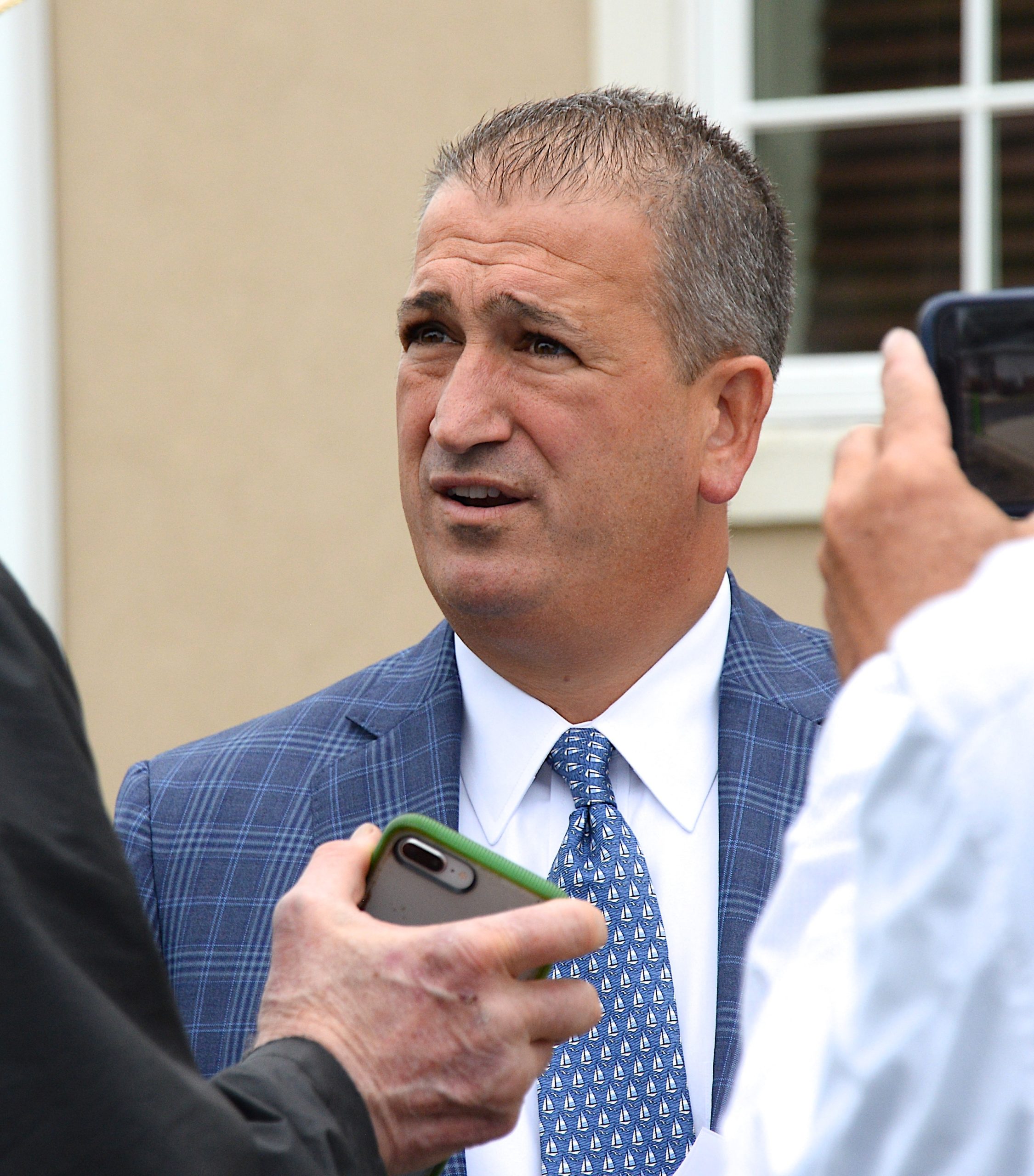
The attorney for the man accused of a murder in Montauk last summer told a judge on Monday that he has still not received full disclosure of the evidence in the case — more than seven months after his client was charged, and more than a month after new state rules took effect that require information in a criminal case to be shared with the defense attorney within 15 days.
Attorney Dan Russo, who represents Joseph Grippo, the man accused of killing Robert Casado with a pickax on a Montauk nature trail in June, told Suffolk County Court Judge Stephen Braslow on Monday that he is still not sure that he has received a full accounting of the grand jury testimony from last June, as required. He also lacks the details of calls to police tip lines, and lab reports from the findings of a forensic search of Mr. Grippo’s personal vehicle following his arrest.
“This is a June 2019 incident,” Mr. Russo said in a Riverhead courtroom on Monday, with Mr. Grippo standing beside him in a green Suffolk County Jail jumpsuit, his hands cuffed behind his back. “I understand the pressure they are under. But my client is charged with murder. He faces forever. He has been sitting in a jail for seven months.”
Prosecutors have alleged that Mr. Grippo had lured Mr. Casado to the Kirk Park nature trail early on the morning of June 6 and then bludgeoned him with a pickax. Investigators have said that Mr. Casado and Mr. Grippo, who were once friends, appear to have been romantically involved with the same woman.
Mr. Russo acknowledged that he has not pored through all of the more than 700 pages of documents that he has already received from prosecutors, but said he simply wanted to put his objection to the delays on the court record, because the matter could be an issue that would be weighed by another court in a potential future appeal.
Assistant District Attorney Frank Schroeder said that Mr. Russo should have in his possession the vast majority of the information in the case, except for forensic lab results — which the DA’s office has yet to receive itself, he said.
Mr. Schroeder had acknowledged on January 13 that his office would not be able to meet the 15-day discovery deadline that began when a new state law took effect on January 1.
Instead, Mr. Schroeder said that he would have all discovery completed by February 14, meeting an additional 30-day allowance that the law gives in cases where discovery is “voluminous.”
“I’ve spent the better part of a month at a copy machine,” Mr. Schroeder said.
Mr. Russo’s primary complaint was that Mr. Schroeder had assumed the additional time to complete discovery without first requesting it from the judge, as he says his reading of the new law would dictate.
Mr. Schroeder countered that the new statute does not specify that the judge must review and consent to the additional time.
Even Judge Braslow said that after reviewing the statute himself he was not certain whether the additional time was a matter of right for the prosecutors or something that should be weighed by the judge in the case. “I read the statute,” the judge said. “It is not clear.”
Police departments and prosecutors around the state have groused about the burdens the new legislation — which also stripped judges of the ability to demand bail before releasing those accused of nonviolent crimes — puts on them with regard to compiling and disclosing the reams of materials that they collect in their investigation of crimes.
But defense attorneys like Mr. Russo say that the new rules should be breaking down a system that was long stacked against a defense team. Grand jury minutes, of the sort Mr. Russo raised issues with on Monday, would commonly be doled out to defense attorneys piecemeal, with only portions related to specific witnesses shared, often not until the very day a witness was to take the stand.
“We would get the grand jury minutes when the witness got into the witness stand — they would say, ‘Here you go,’” Mr. Russo recalled of past cases. “We would ask for a recess so we could read them — some judges would give you the time, some wouldn’t. So this is supposed to put us in a better position.”
Mr. Russo said that of particular interest to him is more information about people who called a County Police tip line in the days after Mr. Casado’s murder, when police had yet to make an arrest. He said the DA’s office had given him transcripts of the calls that seemed to indicate that multiple people had reported having seen a suspicious person in the vicinity of the crime whose descriptions didn’t seem to fit Mr. Grippo’s — but so much information had been redacted that they were basically “useless.” He asked that names and phone numbers of the callers be shared.